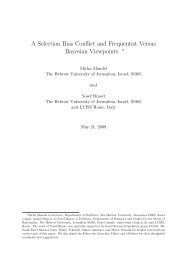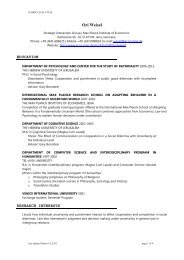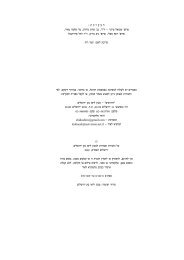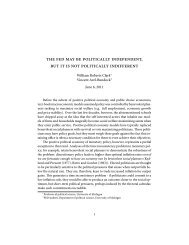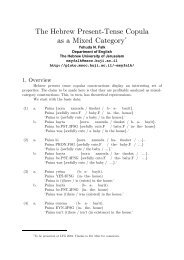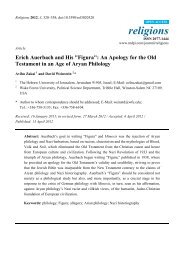Transitive verbs with non-accusative alternation in ... - Pluto Huji Ac Il
Transitive verbs with non-accusative alternation in ... - Pluto Huji Ac Il
Transitive verbs with non-accusative alternation in ... - Pluto Huji Ac Il
Create successful ePaper yourself
Turn your PDF publications into a flip-book with our unique Google optimized e-Paper software.
66<br />
Rivka Halevy<br />
(5) be-’eynav ha-’aforot ra’a hary hištaqfut šel ‘ota<br />
In-his-eyes the-grey saw Harry a-reflection of OM-that<br />
‘eima še-’axaza {??’oto/bo} (Harry Potter, p. 314) (class 8)<br />
terror that-held {??OM-him/<strong>in</strong>-him}<br />
‘In his gray eyes Harry saw a reflection of that terrible fear that<br />
took hold of him’<br />
(6) ha-kibuš mexarsem {??’et/be-} yexolta šel<br />
the-occupation gnaws {??OM/<strong>in</strong>-} the-ability-her of<br />
ha-med<strong>in</strong>a lehagen ‘al ‘emdata ha-musarit klapei<br />
the-country to-defend on position-her the-moral towards<br />
ha-’olam (Haaretz 15.2.02) (class 6)<br />
the-world<br />
‘The occupation gradually reduces the country’s ability to defend<br />
its moral position to the world’<br />
As we shall see <strong>in</strong> some detail below (Section 6), <strong>in</strong> Hebrew it is almost<br />
predictable that the be- construction <strong>in</strong>fluences the verbal mean<strong>in</strong>g and<br />
often triggers a metaphorical read<strong>in</strong>g.<br />
2.1.2. Intentionality<br />
The prepositional construction is marked for <strong>in</strong>tentionality. This is<br />
especially noticeable <strong>in</strong> <strong>verbs</strong> of perception and volition (Class 9). In (7),<br />
e.g., ratsa be- means ‘wanted someth<strong>in</strong>g very much, purposefully’.<br />
(7) tahalix 'oslo haya mivxan še-yisra'el yaxla leharšot<br />
the-process(of) Oslo was a-test that-Israel could to-permit<br />
le-'atsma, še-rov ha-yisra'elim ratsu bo<br />
to-herself, that-most of-the-Israelis wanted <strong>in</strong>-3SG.MASC.<br />
(Haaretz 21.2.01)(class 9)<br />
‘The Oslo (peace) process was a test that Israel could afford and<br />
that most Israelis desired’<br />
In (8), the nom<strong>in</strong>al form derived from baxar ‘choose’, namely bexira<br />
‘choice’, is not construed <strong>with</strong> the <strong>accusative</strong> (baxar ‘et) but <strong>with</strong><br />
prepositional (baxar be), to denote ‘an <strong>in</strong>tentional, not random choice’, as<br />
corroborated by the context (‘this one and not another’). 8



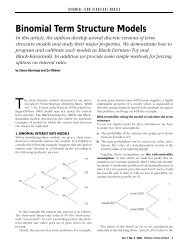
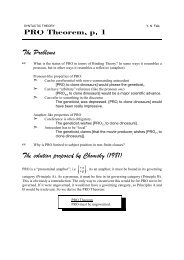
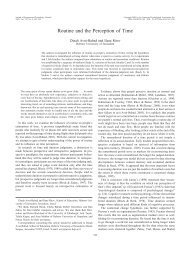
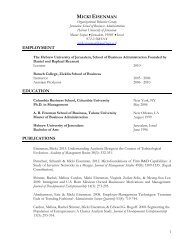
![CV [PDF] - Pluto Huji Ac Il](https://img.yumpu.com/18174585/1/190x245/cv-pdf-pluto-huji-ac-il.jpg?quality=85)
